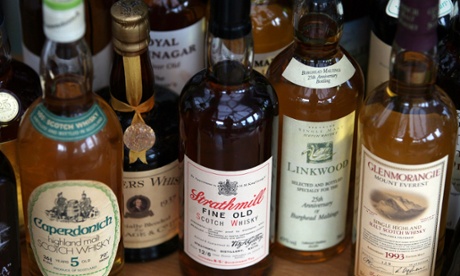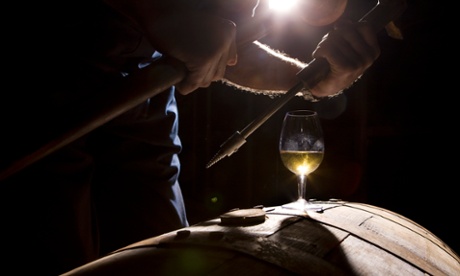Like the other famous malt whiskies made on Islay, Bruichladdich heavily promotes its idyllic island location, carefully selected Scottish barley, clear Hebridean water and loving attention of its craft distillers.
But Bruichladdich is confronting a significant problem. Like its neighbouring distilleries, and many more of Scotland’s 134 whisky producers, it relies on fuel oil, brought in on diesel-powered ferries, to fire the boilers. Islay’s nine distilleries burn 15m litres of oil each year. Ironically, this beautiful spot may well have the highest per capita CO2 emissions of any community in Scotland.
But now the company has set itself the challenge of ensuring that by 2025 its distillation process will be net zero. The production of malted barley and the hot mash to create the wort, whisky’s source fluid, will follow.
Bruichladdich hopes to pioneer the use of an innovative type of green hydrogen production using green electricity and water electrolysis, unlike the conventional method, which uses natural gas and creates CO2 in the process. For now it is depending on a green tariff, but it plans to use renewables installed around the island over the next few years – probably wind, but there are hopes that tidal power will be possible at some point.
Douglas Taylor, Bruichladdich’s chief executive, believes that if successful the technique could help power Islay’s other distilleries, businesses and homes. That could help transform the island, which is also the site of experimental tidal energy pilot projects, from fossil fuel dependency into renewables self-sufficiency.
“We have this view of ‘think big, start small, but start today’. And that’s one of the things you need in the industry: to take a brave and courageous step to represent what change could look like,” he said. “What you have to do is start with what you can control.”
Similar challenges face Scotland’s whisky industry as a whole. Whisky is the UK’s most valuable net export product, worth nearly £5bn in 2019, but its largest distilleries have depended for years on burning gas; fuel oil is widely used across remoter areas. Moreover, whisky producers are aware that the droughts and seasonal variations of climate change will hit Scottish barley harvests and the water supplies essential to whisky production, said Morag Garden, the Scotch Whisky Association’s head of sustainability. Flooding will hit distilleries and transport.
Now, however, the industry has set a net zero target date of 2040, 10 years earlier than the UK government’s current goal and five years earlier than Scotland’s, according to the SWA, and is partway towards hitting it.
A number of major distilleries are switching to anaerobic digestion using their own whisky-production byproduct, known as draff; biomass boilers; and, as a step to replace fuel oils, more efficient gas boilers. In early August Diageo, the biggest producer of scotch, announced plans to install a 4MW solar farm near its packaging plant in Fife, featuring 12,000 solar panels.
And some new entrants have begun life as wholly renewables-powered. The boutique distillery Nc’Nean, a small, organic whisky operation that began production on the Morvern peninsula in Argyll four years ago, was recently certified as the UK’s first net zero whisky distillery, after investing in an expensive biomass boiler fuelled by woodchip from a commercial forest plantation nearby.
“I feel all businesses have a responsibility to do what they can to mitigate the climate crisis we are all facing. I think if you start a new distillery, it’s pretty inexcusable to do anything other than try and use renewable energy,” said Annabel Thomas, Nc’Nean’s founder.
The hydrogen production technique destined for testing at Bruichladdich has been designed by Protium, a London-based energy firm, with £74,000 in development funding from the UK government, using a US technology. The government has set aside £10m for research on helping the UK’s whisky and spirits industries go net zero, and Protium has just applied for a second wave of funding.
Hydrogen will be part of a comprehensive shift of Bruichladdich’s business towards self-sufficiency and sustainability, says Taylor. The distillery, owned by Rémy Cointreau, a French luxury drinks firm, was the first in Scotland to achieve B Corp status – a corporate ethics designation intended to balance “purpose with profit”.
“We’re trying to pioneer something for a wider island benefit. We’re very much supportive of the idea that whatever we look at, could then be taken up by other distilleries but also other businesses on the island, and the community,” Taylor said.










